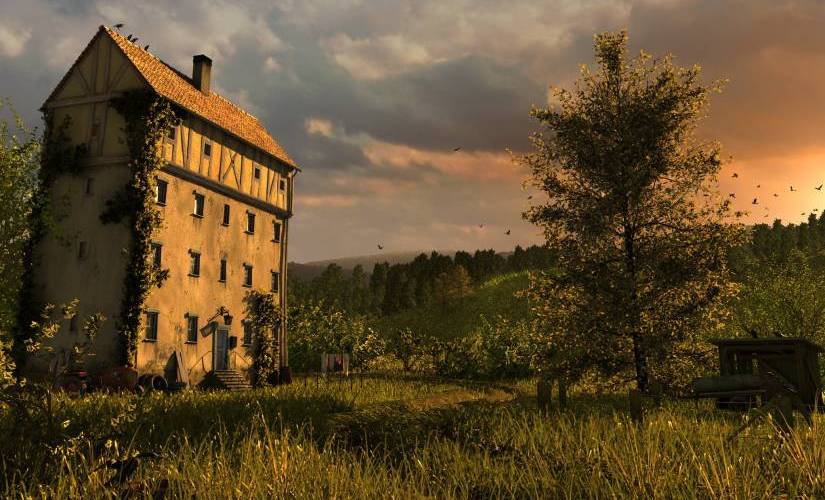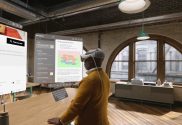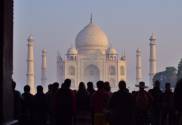The advent of virtual landscapes goes hand in hand with the advent of GC and fractal imagery. We are witnessing a boom, and 3D Environments design software specializes more and more. Today, it is possible to achieve breathtaking environments and stunning realism with relative ease. Below I’ve compiled seven types of software tools you can use to create absolutely stunning 3D environments.
1. Vue
The current leader of landscaping generators, Vue d’Esprit, is published in 1992 by the French software developer e-on. At the time, Vue looked a lot like Bryce, another 3d decorating software. But while Bryce stagnated in an evolutionary impasse, Vue continued to improve. Its capacity to generate complex and photorealistic terrains has been supplemented by the possibility of setting up a sky, atmospheres, and vegetation.
The application is now regularly used by VFX companies to create sets for big-budget movies like The Avengers, How To Train Your Dragon, The Pirates of the Caribbean, etc. Vue has everything you need to create beautiful landscapes, and is available in many versions at different price levels, from the free Pioneer View to Infinite View – which is available for free in Personal Learning Edition.
2. Terragen
Another application that has existed for ages, Terragen appeared in the late 90s, version 2.0 in April 2009 and version 3.0 in October 2013. The program is a landscape generator that prides itself on its realism. It supports the rendering of global lighting, and its results are often breathtaking when detailed landscapes are associated with naturalistic skies.
It has a multi-pass rendering, generates HDR and can also export detailed landscapes for use in other applications (although the resulting files can be massive). Good results are relatively easy to obtain, but the artist’s unfriendly interface and node-based digital structure mean that it takes dedication and a lot of experimentation to master the software.
3. DEM Earth
DEM Earth is a plugin for Cinema 4D and Maya. He is not a standalone logician, but because he is unique, useful, and unreasonably intelligent, he fits perfectly in this list. DEMs, or Digital Elevation Maps, describe a planet’s terrain with real data that can be downloaded and used to move a polygonal mesh. However, finding them is difficult, and getting them to work correctly is even trickier. DEM Earth automates the entire process for you.
DEM uploads data and creating subdivision surface meshes, assembling satellite imagery to create texture maps, and even generating representations of the most important buildings on the site. Essentially, DEM EARTH makes it easy to create 3D Environments from elevation data and satellite imagery. Whether for the photorealistic representation of large areas or the rapid creation of vast fantasy worlds, DEM Earth is excellent.
4. World Machine
This Windows application exists since 2005. World Machine does not have the scenic features of other applications but focuses on creating authentic terrains – such as high-pitch maps or polygonal meshes – which are then exported for use in-game engines or applications. 3D creation.
It uses a system of nodes, connecting the functions that determine the shape and slope of the earth, as well as valleys, cracks, and crevices that give the impression of being eroded by the forces of nature. You can carve the earth much as you wish. You can navigate your landscapes in 3D Environments, then select a region of interest to export for use in the application or game engine of your choice.
5. L3DT
Product of a One-Man software company in Australia, L3DT – or Large 3D Terrain Generator – is another application for creating and editing terrain. The user creates a raw design map for his landscape, and the application generates afield from that data.
From here you can add artifacts such as erosion, terraces, cliffs and so on, or take things in hand and sculpt the shape of your choice in the 3D editor. The final terrain can be exported as with bitmaps, displace, texture, normal, bump, and even shadow data for use in other applications or game engines.
6. TerraRay
Compared to the other solutions listed here, TerraRay is pretty basic. The app is a simple field builder and rendering, allowing you to draw a landscape and then add rocks, water, and sky and produce a global rendering.
It is straightforward to use and, with a little work, can be helpful to create images that could be useful for backdrops or as a starting point for a more detailed matte painting. It’s a shame that maps can not be exported for external use, but for ten dollars, it’s not a bad deal to get into creating environments.
7. Bryce
Developed by Eric Wenger and German artist Kai Krause, KPT Bryce appeared in 1994 as a fractal landscape generator. MetaCreations then bought it and was the leader in environmental design, before losing notoriety by becoming slower and completely buggy.
It was sold to Corel in 2000, again to DAZ 3D in 2004. Version 7 of Bryce is now available as freeware, but it is unlikely that it will work on your operating system unless you are still on Win7 or Vista or OS X 10.6 and lower. It seems that this app is in agony, which is a shame because, in the right hands, it can do wonders. His good days are clearly behind him, but for the honor, and all of the work he put in, we include him in this top all the same.
Try out these wonderful additions to your photographic work and make a 3D environment that others only dream about.





